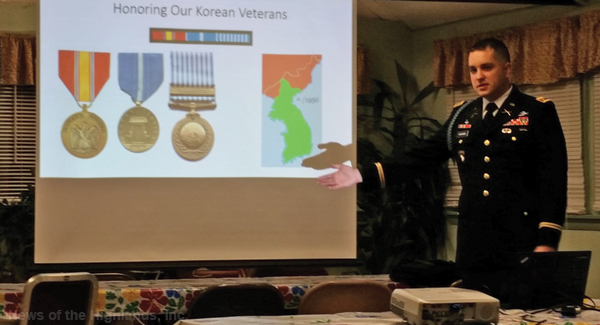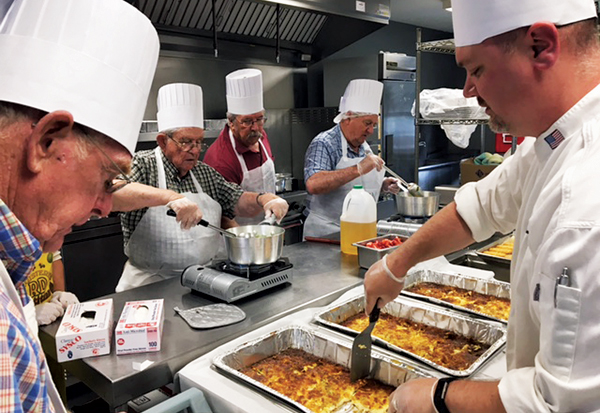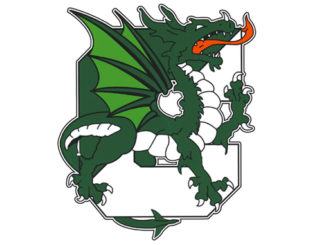
The next honor flight will take off from Stewart International Airport on April 8. For the first time, a majority of the passengers will be veterans of the Korean War.
To prepare for their new guests, the directors of the Hudson Valley Honor Flight met in Munger Cottage in Cornwall on March 7. They spent the evening listening to Maj. Kyle Hatzinger, a history professor at West Point.
During an Honor Flight, veterans are treated to a whirlwind day in Washington, D.C., where they are thanked several times for their service. Each veteran is accompanied by a guardian, who could be a member of their family or a person they never met before.
Starting a conversation can be hard. But it helps if the hosts and guardians know something about the veterans’ war — which was the purpose of the major’s presentation.
“We made it happen,” he said of America’s effort, “but we paid a steep, steep price for letting our Armed Forces dwindle down [from 15 million members at the end of World War II to 591,000]. We were under-equipped and under-trained.”
The war started on June 25, 1950. And during the first year, it looked like it might be over quickly, as the United States and its multi-national allies pushed the Communist forces out of South Korea.
The Americans expected to be home for Christmas until the Chinese intervened. Our air surveillance didn’t detect them until they had invaded the Korean peninsula and forced the longest retreat in U.S. Army history.
The war continued until July 27, 1953. During the last two years, there were peace talks and continued fighting — with neither side losing or gaining much ground. The United States suffered 36,574 fatalities in the war and there are still 7,500 people listed as “missing in action.”
Maj. Hatzinger suggested questions that could be asked on the day of the Honor Flight — such as “What were you expecting when you left home?” “Had you ever heard of Korea?” and “What did your service mean to you?”
Citing his experience with cadets suffering from “senioritis,” the major recommended asking “how” or “why” questions — questions that can’t be answered with “yes” or “no”
“What’s the best way to convince someone to take the flight?” the major was asked. It was a tough question. He thought about it for a moment and came up with a response. “Do it for your buddies. The ones who died and never had a chance to go.”
Before the flight, the veterans will fill out a biography form, the guardians will have a training session, and then the veterans and guardians will join forces at a “meet and greet.”



